
Updating guidelines requires having sufficient information on the elements that are your focus, noted Dan Ouellette, MD, MS, FCCP, senior staff physician and director of the Respiratory Ward at Henry Ford Hospital.

Updating guidelines requires having sufficient information on the elements that are your focus, noted Dan Ouellette, MD, MS, FCCP, senior staff physician and director of the Respiratory Ward at Henry Ford Hospital.

Multiple factors come into play when providers and patients discuss a disease-modifying therapy for multiple sclerosis (MS), explains Patricia K. Coyle, MD, of Stony Brook University Neurosciences Institute.

There are ways practices can take advantage of the delay of Oncology Care First (OCF) to continue learning from their experience in Oncology Care Model (OCM), said Mike Fazio, of Archway Health.

As the only biologic on the market, dupilumab has replaced most of the more traditional treatments for atopic dermatitis, said David Pariser, MD, senior physician at Pariser Dermatology Specialists.
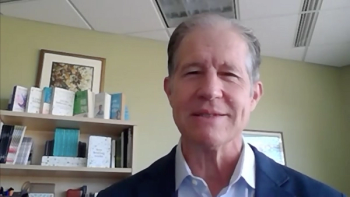
Wayne Jonas, MD, executive director of Samueli Integrative Health Programs at H&S Ventures, discusses whether integrative health practices can be helpful in treating acute pain.

If green light therapy were proven to be effective for migraine, it would be hugely important, said Frank Porreca, PhD, professor of pharmacology and anesthesiology at the University of Arizona and a member of the Department of Collaborative Research at Mayo Clinic in Arizona.

Intermittent hypoxia sensitizes control centers in the brain, noted Krishna M. Sundar, MD, clinical professor, Pulmonary Division, Department of Medicine, and medical director, Sleep-Wake Center, University of Utah.

Clinicians must make sure patients are engaged in their care, stressed Milena Murray, PharmD, MSc, BCIDP, AAHIVP, associate professor at Midwestern University College of Pharmacy.
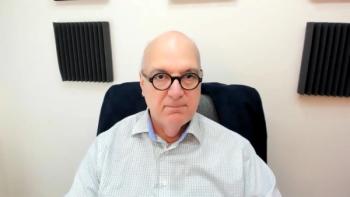
If results from FIGARO-DKD are as positive as those of FIDELIO-DKD, the field will work aggressively to get the message out, said George Bakris, MD, professor of medicine and director of the American Heart Association Comprehensive Hypertension Center at the University of Chicago Medicine.

Investigating circulating tumor DNA is a top priority for patients with diffuse large B-cell lymphoma, noted Michael R. Green, PhD, Department of Lymphoma/Myeloma, Division of Cancer Medicine, University of Texas MD Anderson Cancer Center.

Tecentriq (atezolizumab) was approved in 2019 for PD-L1–positive triple-negative breast cancer (TNBC), said Aditya Bardia, MBBS, MPH, breast medical oncologist, Massachusetts General Hospital, Harvard Medical School.

In the past, there was a greater discrepancy in access to precision oncology testing, which has closed somewhat; however, there are some disenfranchised populations who still struggle to access this care.

Patients with multiple sclerosis (MS) may not have an increased risk of contracting coronavirus disease 2019 (COVID-19), explained John Corboy, MD, of the University of Colorado Denver, School of Medicine.
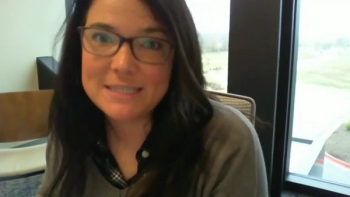
The Highlands Oncology Group partners with primary care providers to identify patients at high risk of lung cancer so the specialists can do a more in-depth screening, explained Joanna Thompson, multidisciplinary program manager, Highlands Oncology Group.

In the FIDELIO-DKD trial researchers purposely recruited centers that had very large African American databases, said George Bakris, MD, professor of medicine and director of the American Heart Association Comprehensive Hypertension Center at the University of Chicago Medicine.

The coronavirus disease 2019 (COVID-19) pandemic is going to test the new risk adjustment in the Oncology Care Model as patients delay care, said Mike Fazio, senior vice president of Client Services at Archway Health.

Wayne Jonas, MD, executive director of Samueli Integrative Health Programs at H&S Ventures, discusses how integrative health practices can help treat patients with pain.

Clarence Moore, PharmD, BCPS, BCOP, assistant professor at Shenandoah University in Ashburn, Virginia, discussed the potential complications for patients with beta thalassemia associated with iron overload and the significance of chelation therapy.
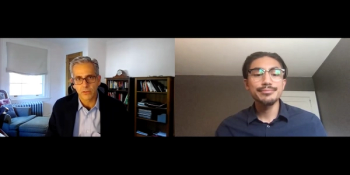
Results from a phase 3 study of Xywav in adult patients with idiopathic hypersomnia exhibited its potential to address this unmet medical need.
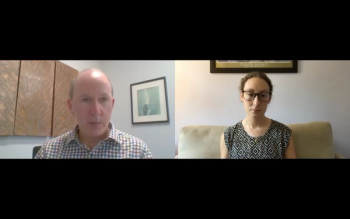
While migraine was more manifest in some patients during the pandemic, others were able to adopt healthier habits, said Peter McAllister, MD, a neurologist, board certified headache specialist, and medical director of the New England Institute for Neurology and Headache.

Artificial intelligence (AI) frees up time for clinicians, noted Anthony L. Loschner, MD, assistant professor and associate program director, Critical Care Fellowship Program, Virginia Tech Carilion School of Medicine.
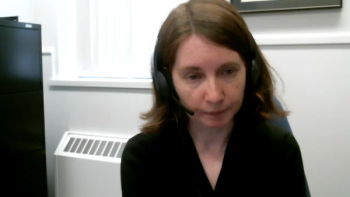
Ruth Ann Marrie, MD, PhD, director of the Multiple Sclerosis Clinic at the University of Manitoba, discusses how comorbidities affect treatment and options for patients with multiple sclerosis (MS).

Even heterosexual women are at risk of contracting HIV, so gay men should not be singled out as the only population with a transmission risk, said Milena Murray, PharmD, MSc, BCIDP, AAHIVP, associate professor, Midwestern University College of Pharmacy.

Age, sex, and body mass index typically drive the development of obstructive sleep apnea, noted Krishna M. Sundar, MD, clinical professor, Pulmonary Division, Department of Medicine, medical director, Sleep-Wake Center, University of Utah.
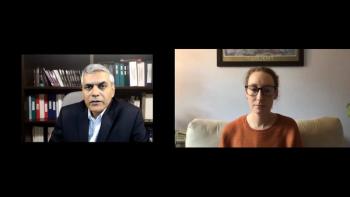
The FIDELIO-DKD program is perhaps just the beginning of seeing how finerenone can be used, said Rajiv Agarwal, MD, MS, FASN, a professor of medicine at Indiana University School of Medicine and a staff physician at the Veterans Affairs Medical Center in Indianapolis, Indiana.

Patricia K. Coyle, MD, of Stony Brook University Neurosciences Institute, explains how studies are trying to answer a debate about 2 approaches to treat multiple sclerosis (MS).
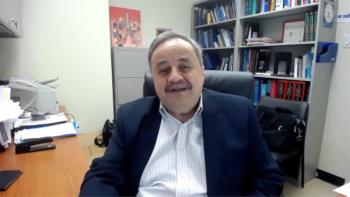
Treatment targets include several interleukins, immunoglobulin E, and alarmins, pointed out Nicola Hanania, MD, MS, pulmonary critical care physician and director, Airway Clinical Research Center, Baylor College of Medicine, Houston.
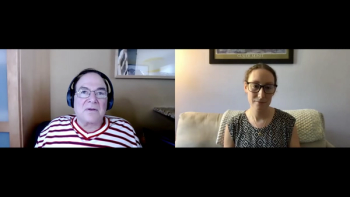
If you only experience migraine with your period for a few days, it would be difficult to recommend taking a drug all the time, said Stephen Silberstein, MD, professor of neurology at Thomas Jefferson University and director of the Headache Center at Jefferson Health.

What is feasible for one person may be unaffordable for another, said Milena Murray, PharmD, MSc, BCIDP, AAHIVP, associate professor, Midwestern University Chicago College of Pharmacy, who practices at the Northwestern Medicine Infectious Disease Center.

Lametra Scott, PharmD, CCHP, CEO of Breaking The Sickle Cell Cycle Foundation Inc discusses the current standard of care in sickle cell disease (SCD) and the unmet needs facing patients.

259 Prospect Plains Rd, Bldg H
Cranbury, NJ 08512
© 2025 MJH Life Sciences®
All rights reserved.
